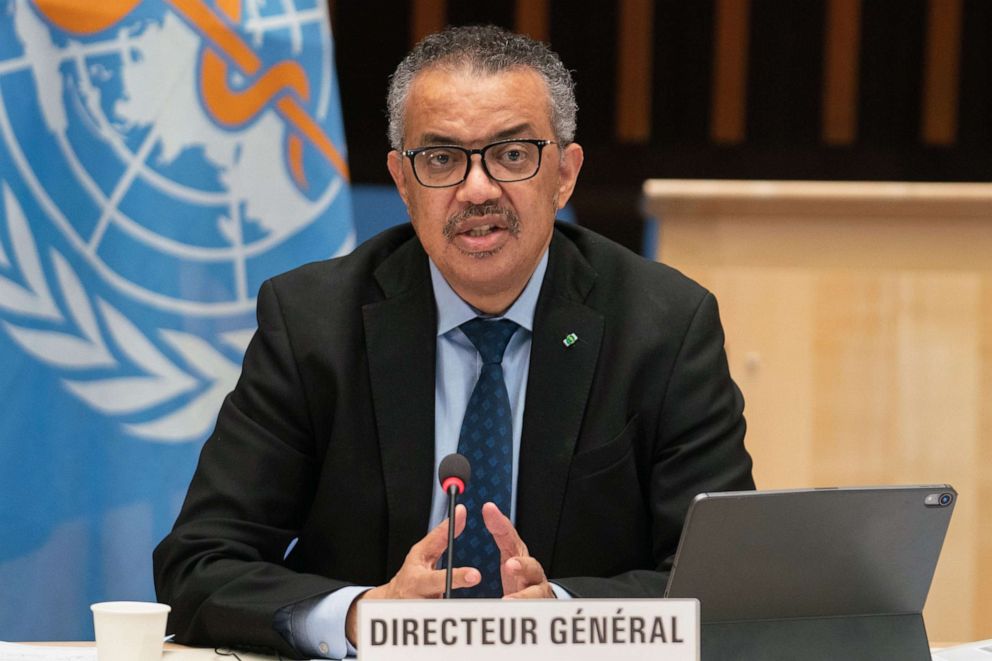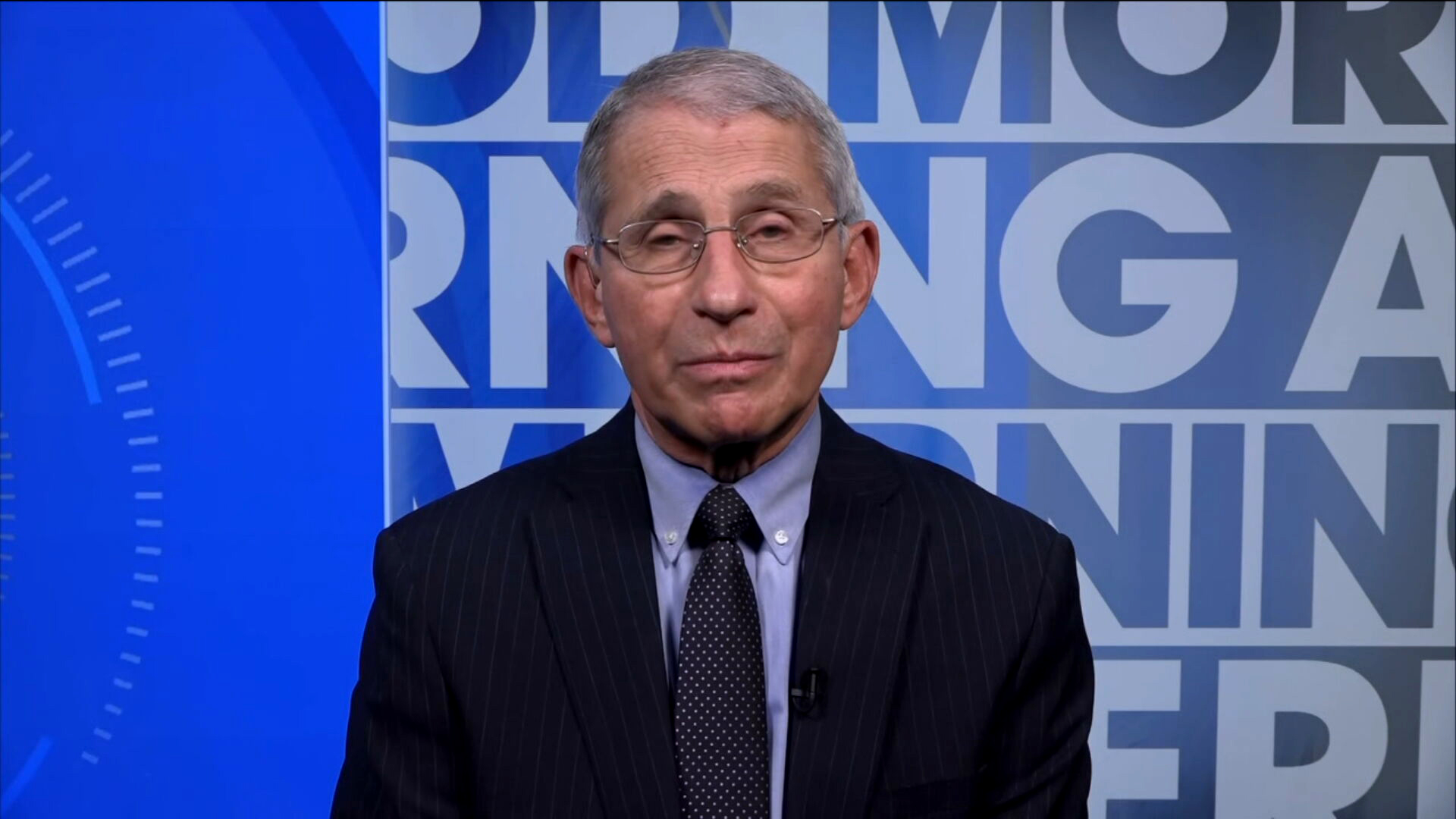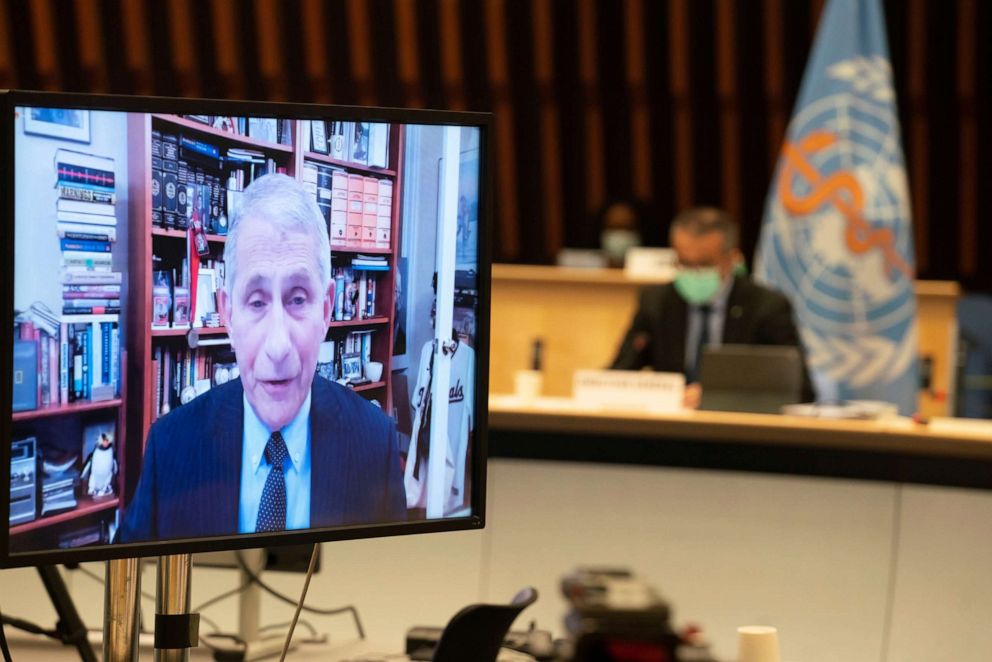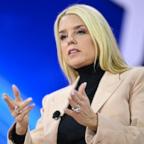US withdrawal from the WHO 'was very disconcerting to everybody,' Fauci says
Dr. Anthony Fauci, the nation's top expert on the coronavirus pandemic, said rejoining the World Health Organization was "very important" and that the country's withdrawal from the United Nations agency "was very disconcerting to everybody."
"It's going to be really very important. When you're dealing with global pandemic, you have to have an international connectivity, and for us to not be in the WHO was very disconcerting to everybody, all the member countries including the health officials here in the United States," Fauci, director of the National Institute of Allergy and Infectious Diseases, told ABC News' Michael Strahan in an interview Thursday on "Good Morning America."
Earlier Thursday, Fauci announced via video link to the WHO's executive board in Geneva that the United States will remain a member, will fulfil its financial obligations to the organization and will stop reducing its staff there.
Fauci also told the board that U.S. President Joe Biden will issue a directive Thursday that shows the country's intent to join the COVAX Facility, a global initiative to ensure rapid and equitable access to COVID-19 vaccines for all countries regardless of income.

The announcement came just hours after Biden, who was sworn-in Wednesday, signed an executive order reversing former President Donald Trump's decision to withdraw from the WHO. Trump had accused the organization of failing to correctly respond to the coronavirus pandemic and of allegedly giving too much power to China.
"The official announcement that we are rejoining, we're going to live up to our financial commitments and a whole bunch of other things, it was really a very good day. I mean, the response I'm getting from my colleagues all over the world is really very refreshing," Fauci said on "GMA."
Fauci, who is Biden's chief medical adviser on the coronavirus pandemic, said he will meet with the president later Thursday to brief him on the U.S. outbreak and the vaccine situation.
"The president has made this his top priority," he said. "His goal is to get 100 million people vaccinated within the first 100 days of his presidency. I mean, I feel fairly confident that that's going to be not only that but maybe even better."

Fauci said the contractual agreements the U.S. has made to procure COVID-19 vaccines will help meet that goal, along with new initiatives to open community vaccination centers and make the vaccines available in pharmacies. He said Biden may also use the Defense Production Act "wherever he needs it." The 1950 wartime law requires private companies to prioritize any product orders from the federal government over others.
"As he says, he's going to do everything that he needs to do to make sure we have a successful roll out of the vaccines, get it into peoples arms and get as many people vaccinated as we possibly can," Fauci said. "I think we can look forward to having more companies supplying vaccines in addition to the two now that are doing it, namely Moderna and Pfizer."
Fauci said an RNA virus like the novel coronavirus can be expected to mutate but some of the new strains that have emerged are "concerning" and must be followed "very, very carefully."
"There are some concerning variants, there's one in the U.K. and we have that right now in the United States. It appears to be transmitted more efficiently, it doesn't appear to be more virulent," he said. "We're looking very carefully to make sure that our vaccines that we're distributing and putting into peoples arms [are] going to continue to protect against those variants."





